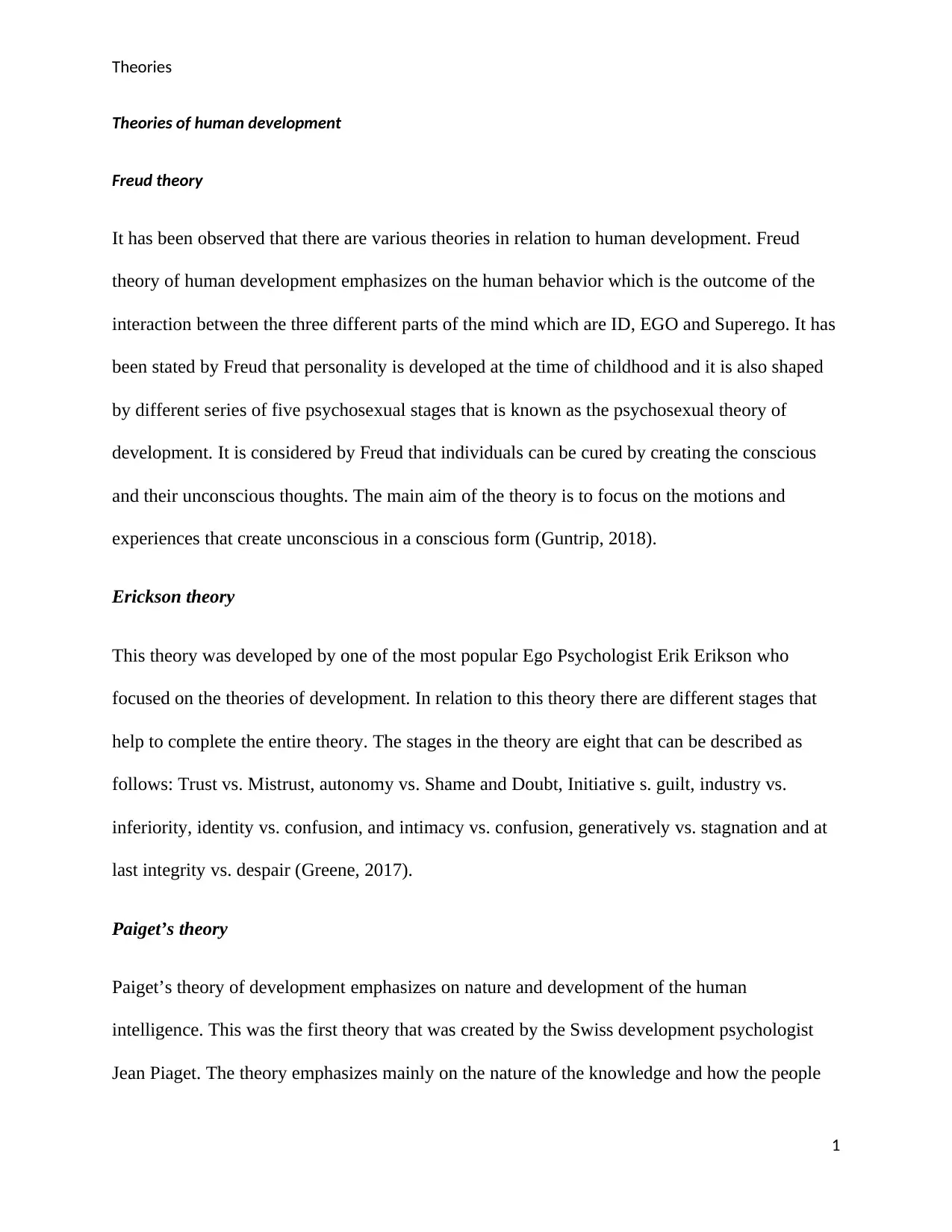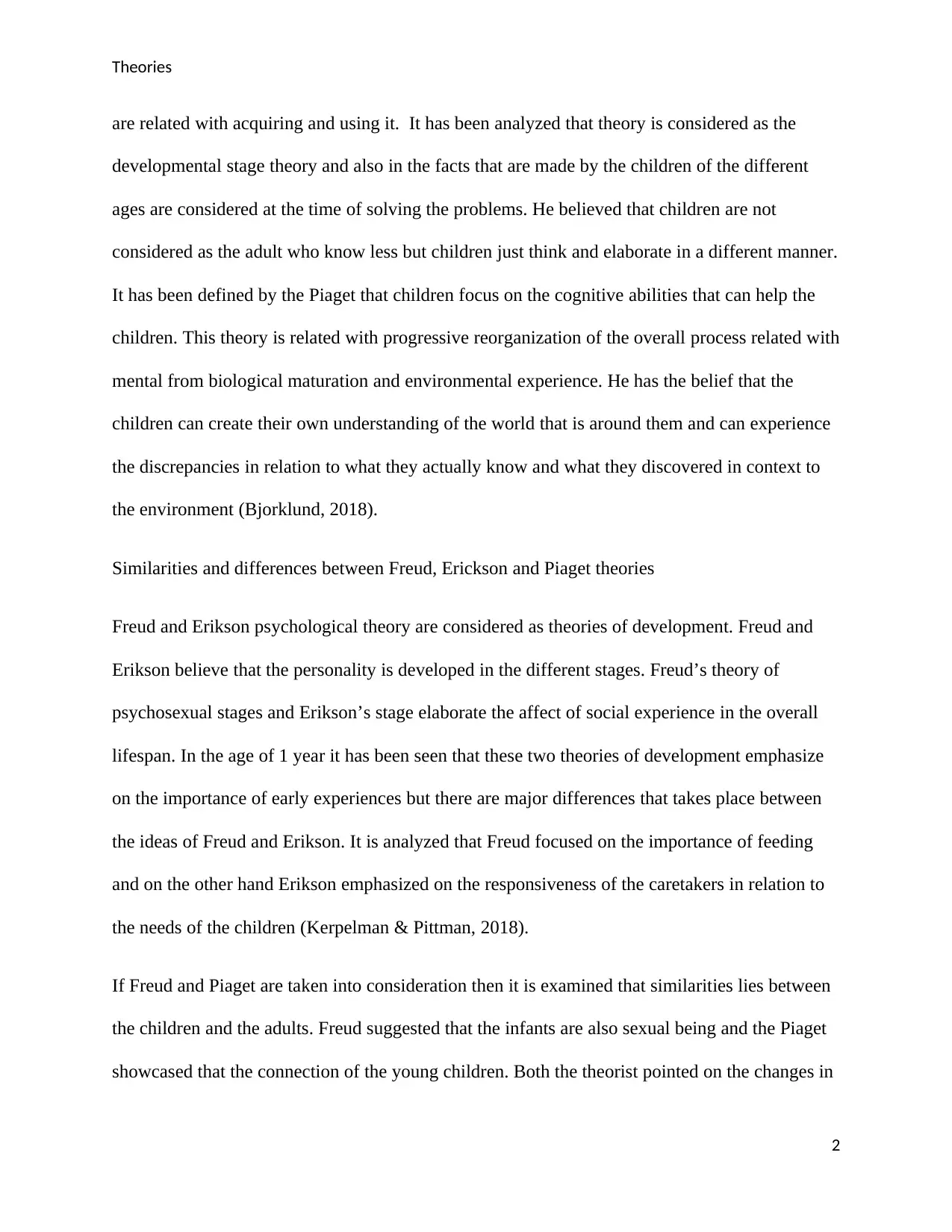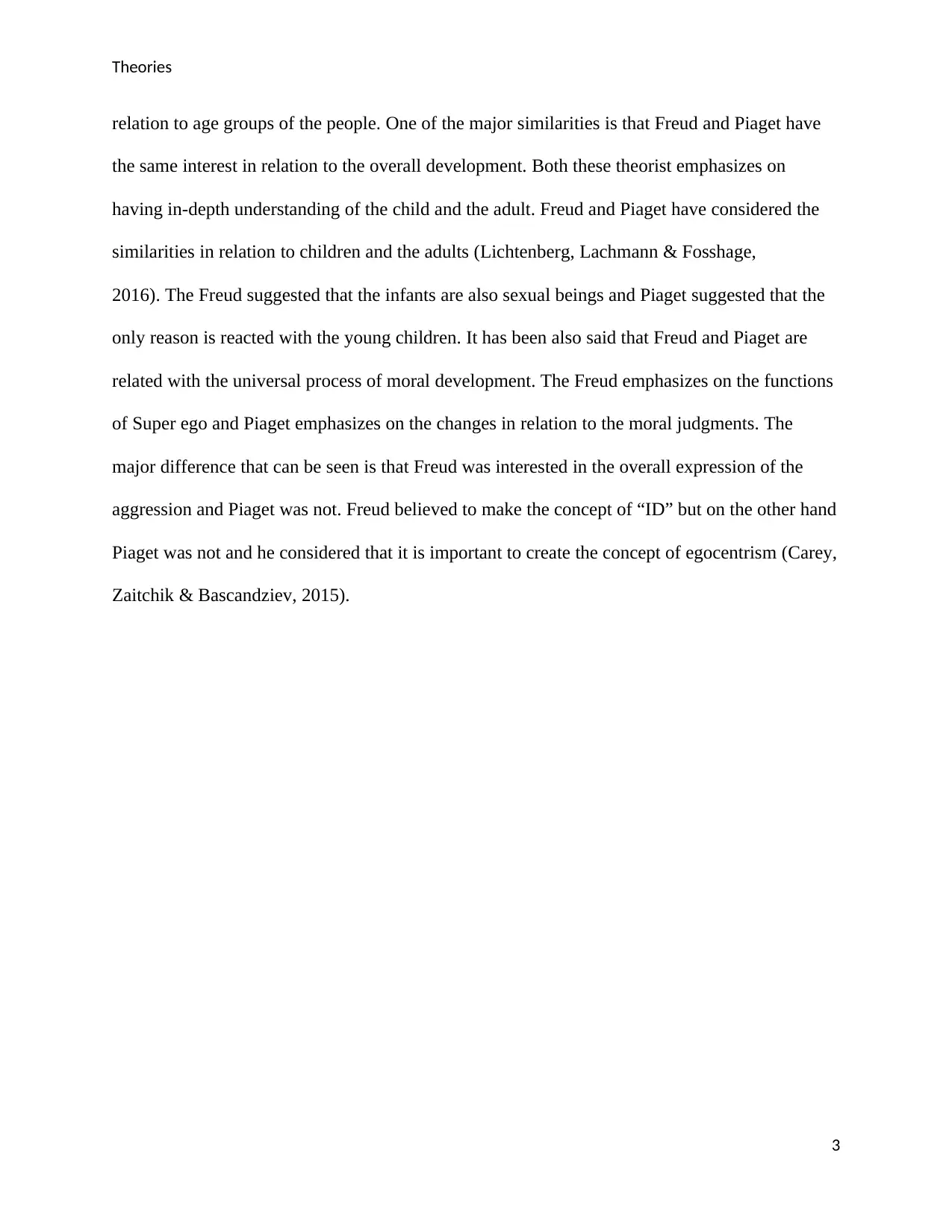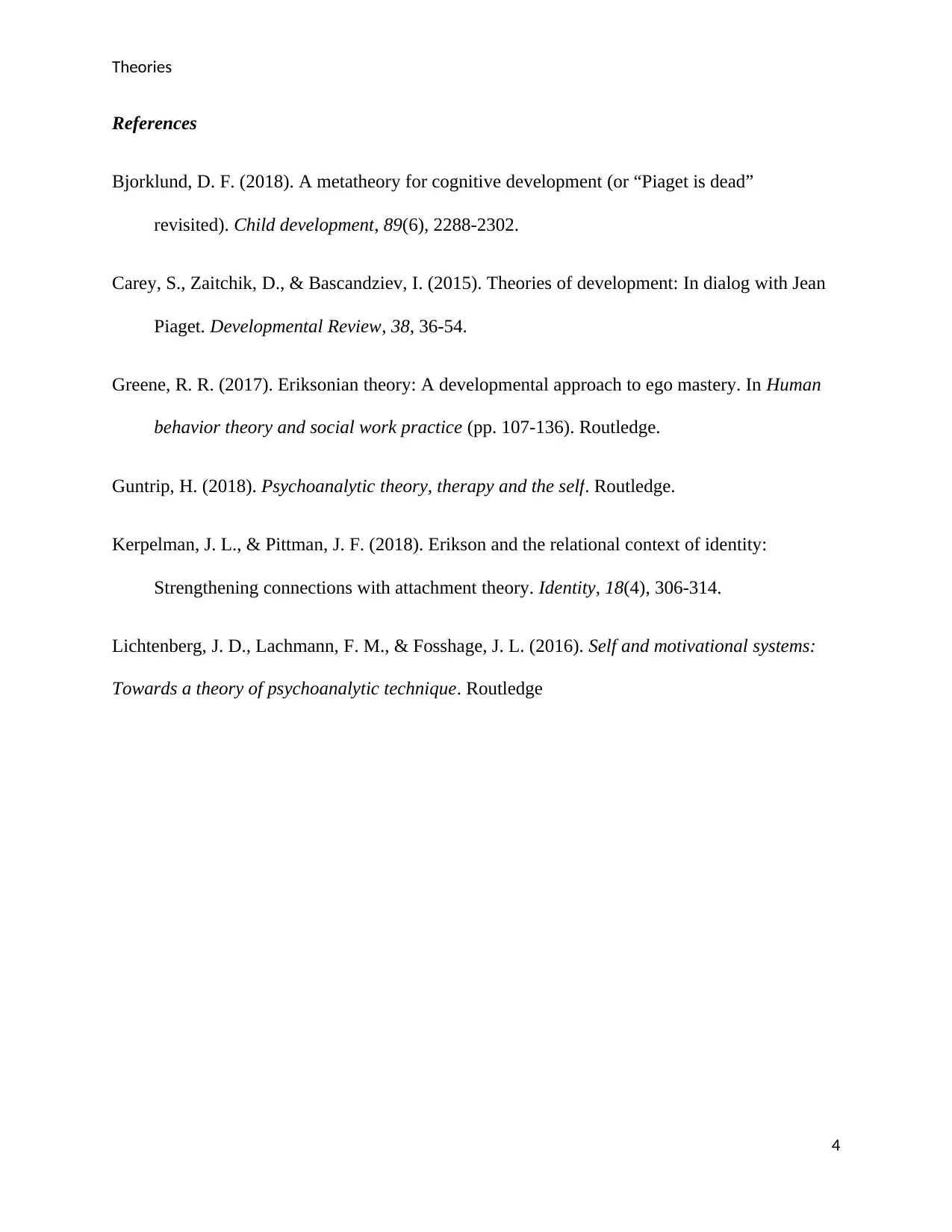Exploring Freud, Erickson, and Piaget's Theories on Development
VerifiedAdded on 2023/04/21
|4
|1024
|65
Essay
AI Summary
This essay provides a concise overview of the human development theories proposed by Sigmund Freud, Erik Erikson, and Jean Piaget. It begins by individually describing each theory: Freud's psychosexual stages focusing on the id, ego, and superego; Erikson's psychosocial stages emphasizing social experiences across the lifespan; and Piaget's cognitive development stages highlighting children's evolving understanding of the world. The essay then compares and contrasts these theories, noting similarities such as the emphasis on developmental stages and the impact of early experiences, while also pointing out differences in their focus, such as Freud's emphasis on psychosexual development versus Erikson's focus on psychosocial development and Piaget's emphasis on cognitive development. The analysis also addresses concerns related to diversity and the limitations of these early theories in accounting for factors like race, gender, and socioeconomic status. Desklib offers a wealth of similar solved assignments and study resources for students.
1 out of 4









![[object Object]](/_next/static/media/star-bottom.7253800d.svg)